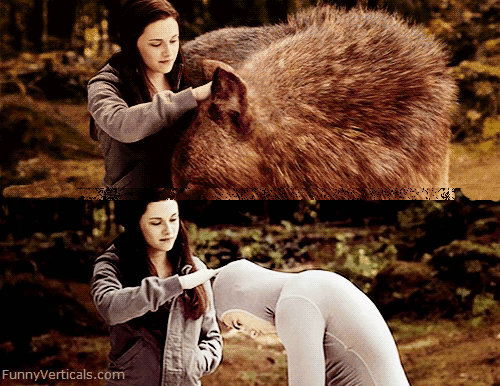Few things in this world have the ability to make us laugh, cry, obsess over fictional characters and wait an entire year for the sequel to do it all over again. Movies are unique and powerful methods of expression, capable of rendering us both weak in the knees and outraged over injustice. They’re so completely integrated in our culture that it’s hard to imagine a world without them. If you rendezvous on the reg with the latest box office bashes, then a major in film studies might just be the path for you.
What You’ll be Doing

Film and cinema courses are challenging, but fun. You’ll develop your filmmaking abilities in classes on screenwriting, production, cinematography, editing, directing and more. With technology constantly evolving, you’ll likely also study the basics of 3D animation, rendering and stop motion. You’ll even produce your own short films where all of these skills combined will ultimately lead you to the mother of all cinematic skills: character development. Through scriptwriting and intensive media studies, you’ll spend a ton of time learning how to craft characters that act and feel real.
Upsides

1. “I’ve loved seeing myself and my classmates develop distinct creative voices over the years. When we first came in, we were all kind of unsure of ourselves, and would make projects just for the sake of making them. But the more films you make, the more you discover that the stories you want to tell reveal who you are as a unique individual, and now I can look at my classmates’ work and say ‘That’s totally a Daniel film’ or ‘That’s such a Victoria moment,’ which is something I couldn’t say before.” – Christian Klein, Florida State University, Senior
2. “For me the upsides are the writing classes because that’s the part of film that I love. My family moved here from Colombia when I was three, and I remember that a lot of the English I learned was from watching cartoons with my uncle, and since then, I’ve just had a soft spot for TV and film. I love the stories that they can tell and the ways that it can effect a person’s life.” – Daniel Vinasco, University of Central Florida, Junior
3. “One of the biggest perks of the program (Animation and Digital Arts), which assisted in landing this amazing opportunity, was the fact that the program is geared towards making you versatile. I was able to not only learn how to create films that look visually stimulating and tell a cohesive and engaging story, but also how to animate, composite, light and tell a story through another medium: visual effects and animation.” – Anthony Cabrera, Visual Effects Coordinator at Pixomondo, Florida State University Class of 2015
Downsides
1. “The only real downside in my opinion is the massive workload. It can be pretty life consuming at times. I’ve had plenty of moments where I’m waking up at the crack of dawn for a 13-hour shoot day, or I’m sitting in the lab at 2 a.m. trying to finish an assignment, and I just think to myself, ‘What am I doing with my life?’ In retrospect, I think it’s a pretty small price to pay for the privilege of making movies for class credit and hopefully one day for a living.” – Christian Klein, Florida State University, Senior
2. “One downside is the competitiveness of the field since it isn’t a common job. But in the end it’s worth it because if you want to make something good, you’ve got to work with a good team and sometimes you’re spending weeks focused on a project with certain people so you form a creative relationship.” – Daniel Vinasco, University of Central Florida, Junior
3. “We dealt with a lot of change (in our program), which gave us a thick skin, but it’s like being the first child; you make your mistakes as a parent with them and learn for the next one, and then you learn from the mistakes you made with the second for the third, and the cycle continues. People say you don’t have to go to film school to make it in the business. My take on that is that it’s true, but it would be so much harder. Why? Because you could not gain the experience, the knowledge, the connections or the opportunities I achieved without it.” – Anthony Cabrera, Visual Effects Coordinator at Pixomondo, Florida State University Class of 2015
Career Opportunities

Communication is the heart of any career involving teamwork, and what better communicators are those who can tell a great story? From action to animation, this is a field where technology, striking visual effects and well-written scripts combine to comment on the nuances of the human experience. While the competition for high-paying positions is fierce, there are plenty of jobs across all kinds of platforms for recent film graduates.
1. Cinematographer
Cinematographers are in charge of all the camera elements of film. They’re occasionally referred to as the directors of photography (DoP) as they align the camera lenses and filters to the director’s vision. The cinematographer works close with the director and controls the lighting aspects of the production and by extension the visual “mood” of the film. It’s one of the more artistic jobs on the production side, allowing for lots of creative freedom–depending, of course, on how lax the director is.
2. Casting Director
Depending on the size of the project, this job may be broken down into multiple positions. For example, a casting director’s sole job could be hiring extras. The director or producer is often involved in the process, working alongside the casting director, and remains the ultimate authority. The audition process can be grueling, possibly expanding several months, but is a rewarding process. Most of a casting director’s work lies in pre-production and they only work afterwards as liaisons between performers and their respective agencies.
3. Screenwriter
Without words to bring it to life, there can be no story. Professionals are usually represented by agencies, but scripts can be written by anybody with a creative thought or idea and can then be pitched to a film studio, director, producer or production company. If you’ve got the idea, talent and a little bit of luck, anything could happen.
4. Visual Effects Specialist
Roles in the visual effects field can widely vary, depending on the project. The visual effects specialist oversees all computer-generated imagery (CGI) placement, any post-production animation, the green screening process—basically all elements of the film that would be impossible to shoot in real life, such as the blue cat-like aliens from Avatar or the giant robot fight scenes from the Transformers series. This field is so relevant to the cinematic experience that it holds its own Oscar category.
5. Film Distributor
The distributor is in charge of marketing the film once it’s completed and will often work with a distribution company rather than a production company. This could include everything from securing contracts with theaters to ensuring the production company retains its share of funds from ticket sales. The distributer will strike a deal with the theater chains and negotiate what percentage will go to each party. Distributers also decide the film’s premiere date, and control all promotional materials prior to release.



















